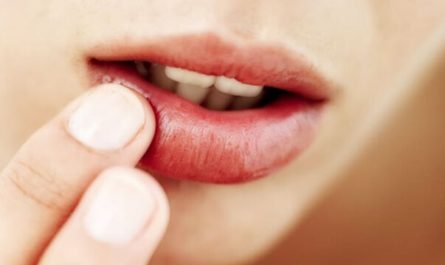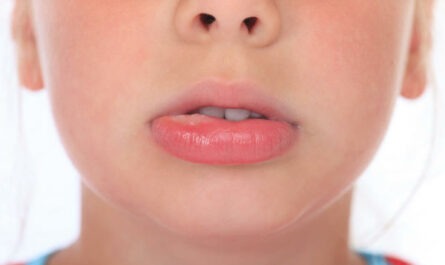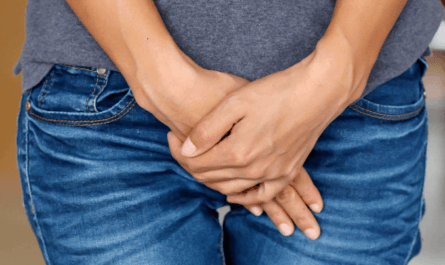Summer is a season of fun and adventure, but it also comes with some unwanted guests, such as chiggers. These tiny red bugs can leave you with itchy and uncomfortable bites lasting for days. If you’ve experienced the misery of chigger bites, you’ll know how frustrating it can be to find relief.
Fortunately, several effective remedies can help soothe the itch and get rid of the bites. From natural home remedies to over-the-counter medications, there are plenty of options. In this article, we’ll explore some of the best ways to get rid of chigger bites.
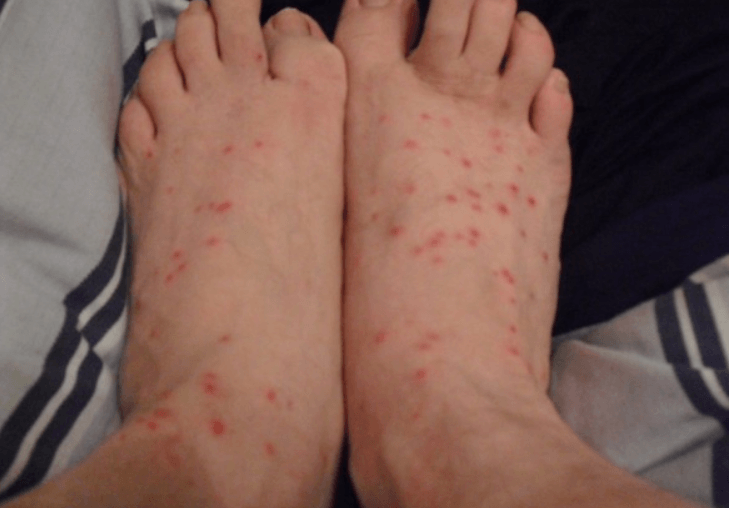
Symptoms of Chigger Bites
Here are the common symptoms of chigger bites:
- Intense itching: The primary symptom of a chigger bite is severe itching in the affected area. The itching typically begins a few hours after the bite occurs and can last for several days.
- Red, raised bumps: Chigger bites often appear as small, red, and raised bumps on the skin. They may resemble tiny blisters or pimples.
- Clusters or lines: Chigger bites may be found in clusters or arranged in a line, as several chiggers may feed close together in the same area.
- Rash or hives: In some cases, chigger bites can cause a generalized rash or hives on the skin surrounding the bites.
- Swelling: The bitten area may become slightly swollen or inflamed.
- Itchy welts: Scratching the chigger bites can lead to the formation of itchy welts, which can be uncomfortable.
Primary Treatment of Chigger Bites
Clean the bite zone
Before doing anything else, clean the region where the bite happened and utilize a cleanser and warm water. If there’s swelling in the zone of the chigger bite, you can put a frosty pack or ice pack on the chomp to diminish the swelling. The icy will likewise incidentally ease the torment and tingling.
Apply a cool pack
You can apply an ice pack for the most extreme of 10 minutes on end. After 10 minutes of use, abandon it for an additional 10 minutes. Do this rotation for 60 minutes.
Do not scratch the chigger bite
The nibble region will probably be irritated, and you will be enticed to scratch — don’t. Do your closest to perfect for fighting the temptation to scratch. Tragically, scratching a bug chomp can compound the situation by bringing about a disease.
Apply anti-itch creams or lotions
If the chigger bite keeps irritating, you can apply a calamine moisturizer, a topical antihistamine, or a corticosteroid cream to ease it. These moisturizers and creams are accessible as over-the-counter drugs at your nearby drugstore. If you aren’t sure which one may work best for you, converse with your drug specialist.
Take oral drugs
For example, you can take acetaminophen, Tylenol, ibuprofen, Advil, or an antihistamine, Claritin, orally on the off chance you have to assuage the agony or tingling.
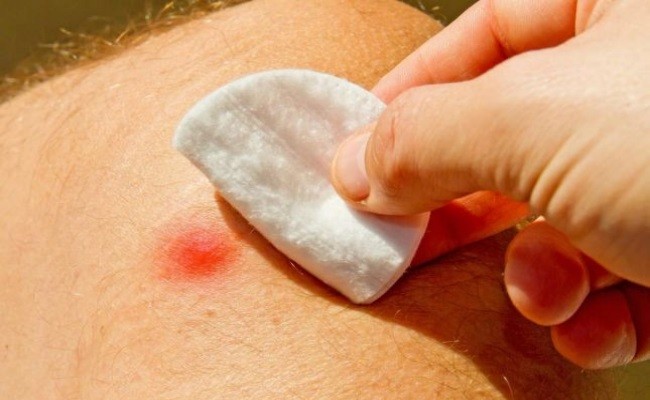
14 Home Remedies to Get Rid of Chigger Bites
1. Baking Soda Paste
Baking soda is alkaline and helps to neutralize the acidic compounds found in chigger saliva, which causes an intense itching sensation. It also possesses anti-inflammatory properties that can reduce redness and swelling.
- In a small bowl, mix 1 tablespoon of baking soda with enough water to form a thick paste.
- Clean the affected area with mild soap and water, then pat it dry with a clean towel.
- Apply the baking soda paste directly onto the chigger bites.
- Leave the paste on for 15-20 minutes to allow it to work its magic.
- Rinse off the paste with cool water and gently pat the area dry.
2. Oatmeal Bath
Oatmeal is renowned for its skin-soothing properties. It contains compounds that help reduce inflammation and itching, providing instant relief from chigger bite discomfort.
- Grind one cup of plain, uncooked oatmeal into a fine powder using a blender or food processor.
- Fill a bathtub with warm water and add the ground oatmeal to it.
- Stir the water to ensure the oatmeal is well-distributed and evenly mixed.
- Soak in the oatmeal-infused water for 15-20 minutes, ensuring the affected areas are submerged.
- Pat your skin dry with a towel after the bath, and avoid rubbing the skin vigorously.
3. Aloe Vera Gel
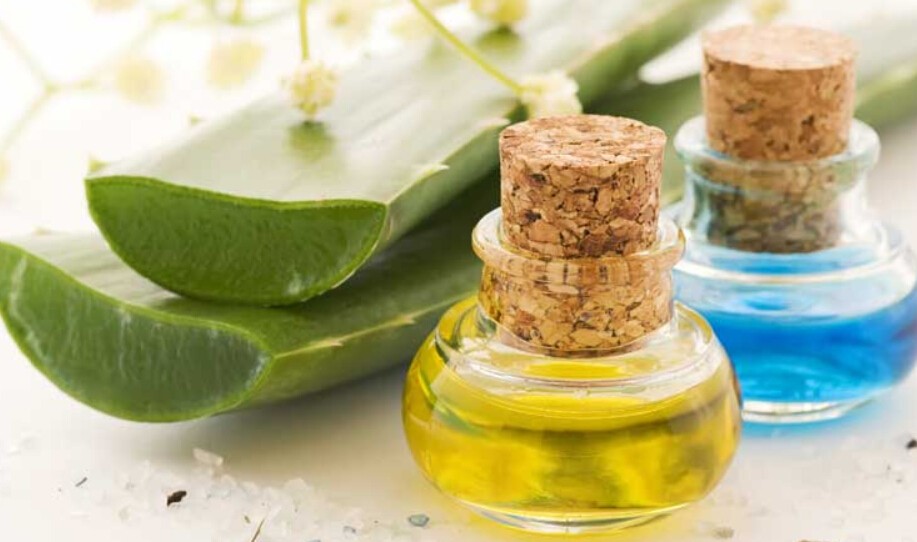
Aloe vera gel is a natural anti-inflammatory agent that can reduce swelling and redness caused by chigger bites. Its cooling effect also helps to soothe itching.
- Obtain fresh aloe vera leaves or use store-bought aloe vera gel with a high concentration of aloe.
- Cut a leaf and extract the gel using a spoon or squeeze the gel from the store-bought container.
- Apply the aloe vera gel directly to the chigger bites.
- Allow the gel to dry on the skin, and avoid rubbing it off.
- Reapply as needed throughout the day to maintain the soothing effect.
4. Tea Tree Oil
Tea tree oil possesses powerful antimicrobial and anti-inflammatory properties that can help reduce itching and prevent infection in chigger bites.
- Dilute tea tree oil with carrier oil, such as coconut oil, in a 1:1 ratio to avoid skin irritation.
- Clean the affected area with mild soap and water, then pat it dry with a clean towel.
- Using a cotton ball, apply the diluted tea tree oil directly to the chigger bites.
- Let the oil sit on the skin, and do not rinse it off.
- Repeat this process two to three times daily until the bites heal.
5. Witch Hazel
Witch hazel is a natural astringent that can help reduce inflammation and itching caused by chigger bites.
- Purchase pure witch hazel from a drugstore or health food store.
- Clean the affected area with mild soap and water, then pat it dry with a clean towel.
- Dab a few drops of witch hazel onto a cotton ball.
- Gently apply the cotton ball to the chigger bites, allowing the witch hazel to absorb into the skin.
- Leave it on and avoid rinsing it off.
6. Apple Cider Vinegar
Apple cider vinegar contains acetic acid, which can help reduce itching and inflammation in chigger bites.
- Dilute apple cider vinegar with water in a 1:1 ratio to avoid skin irritation.
- Clean the affected area with mild soap and water, then pat it dry with a clean towel.
- Dip a cotton ball in the diluted apple cider vinegar solution.
- Gently dab the cotton ball on the chigger bites, ensuring the vinegar solution comes into contact with the affected skin.
- Let it dry on the skin, and avoid rinsing it off.
7. Epsom Salt Soak
Epsom salt, or magnesium sulfate, has anti-inflammatory properties that can reduce swelling and soothe itching caused by chigger bites.
- Fill a basin or a bathtub with warm water.
- Add half a cup of Epsom salt to the water and stir until it dissolves completely.
- Soak the affected areas in the Epsom salt solution for 15-20 minutes.
- Gently pat your skin dry with a towel after the soak.
8. Peppermint Oil
Peppermint oil has a cooling effect on the skin and can help alleviate the itching and discomfort associated with chigger bites.
- Dilute peppermint oil with a carrier oil, such as almond or olive oil, in a 1:1 ratio.
- Clean the affected area with mild soap and water, then pat it dry with a clean towel.
- Gently massage the diluted peppermint oil onto the chigger bites.
- Allow the oil to absorb into the skin and avoid rinsing it off.
- Repeat this process two to three times daily as needed.
9. Cucumber Slices
Cucumber slices have a cooling effect on the skin, which can help reduce inflammation and soothe chigger bites.
- Wash a fresh cucumber thoroughly and cut it into thin slices.
- Lie down and place the cucumber slices directly on the chigger bites.
- Let the slices sit on the skin for 5-10 minutes to provide relief.
- Repeat as necessary to alleviate itching and discomfort.
10. Lemon Juice
Lemon juice contains citric acid, which can help reduce itching and prevent infection in chigger bites.
- Squeeze fresh lemon juice into a small bowl.
- Clean the affected area with mild soap and water, then pat it dry with a clean towel.
- Soak a cotton ball in lemon juice.
- Gently dab the cotton ball on the chigger bites, ensuring the juice comes into contact with the affected skin.
- Allow the lemon juice to dry on the skin, and avoid rinsing it off.
11. Chamomile Tea Compress

Chamomile tea possesses anti-inflammatory properties that can help reduce redness and swelling in chigger bites.
- Brew a cup of chamomile tea using a chamomile tea bag or loose chamomile flowers.
- Let the tea cool down to room temperature.
- Soak a soft cloth in the chamomile tea.
- Gently apply the cloth as a compress to the chigger bites.
- Leave it on for 10-15 minutes, allowing the soothing properties of chamomile to take effect.
12. Honey
Honey has natural antibacterial properties that can help prevent infection in chigger bites.
- Prepare raw, organic honey for the best results.
- Clean the affected area with mild soap and water, then pat it dry with a clean towel.
- Apply a small amount of honey directly onto the chigger bites.
- Allow the honey to sit on the skin for 10-15 minutes before rinsing it off.
- Repeat this process two to three times daily to promote healing.
13. Lavender Oil
Lavender oil has calming properties that can provide relief from itching and discomfort caused by chigger bites.
- Dilute lavender oil with carrier oil, such as coconut oil or jojoba oil, in a 1:1 ratio.
- Clean the affected area with mild soap and water, then pat it dry with a clean towel.
- Gently apply the diluted lavender oil to the chigger bites.
- Allow the oil to absorb into the skin and avoid rinsing it off.
- Reapply as needed throughout the day to maintain the soothing effect.
14. Cold Compress
Applying a cold compress can help reduce inflammation and numb the area, providing temporary relief from itching and discomfort caused by chigger bites.
- Place a few ice cubes in a clean cloth or seal them in a plastic bag.
- Hold the cold compress on the affected areas for 10-15 minutes.
- Take breaks between applications to avoid damaging the skin.
- Repeat as needed to alleviate itching and reduce swelling.
How to Prevent Chigger Bites?
Chigger bites can be prevented by taking a few precautions. Here are some tips to avoid chigger bites:
- Wear protective clothing: Wear long-sleeved shirts, long pants, and closed-toe shoes in areas where chiggers are common.
- Use insect repellent: Apply insect repellent to your skin and clothing before going outdoors. Look for a repellent that contains DEET, picaridin, or lemon eucalyptus oil.
- Stay away from chigger-infested areas: Avoid sitting or lying down on the ground in areas where chiggers are known to be present, such as tall grass or wooded areas.
- Take a shower: Take a shower as soon as you come indoors after spending time outdoors in chigger-prone areas. This can help wash away any chiggers attached to your skin.
- Treat your pets: Chiggers can attach to your pets and then be transferred to you. Treat your pets with a flea and tick preventative that also repels chiggers.
FAQs
1. Can chigger bites spread from person to person?
No, chigger bites do not spread from person to person. They are acquired from outdoor environments where chiggers are present, such as tall grass, weeds, and shrubs.
2. How long does it take for chigger bites to heal?
Chigger bites usually heal within one to two weeks. However, with the help of home remedies, healing time can be expedited.
3. Can chigger bites cause serious health issues?
In most cases, chigger bites are not serious and resolve on their own. However, excessive scratching can lead to secondary infections.
4. Can I scratch chigger bites?
Avoid scratching chigger bites as it can lead to further irritation and increase the risk of infection.
5. When to Visit a Doctor?
Chigger bites are usually not serious and can be treated at home, but there are some situations where it may be necessary to visit a doctor. Here are some signs that you should seek medical attention:
- Severe itching: If the itching is severe and not relieved by over-the-counter antihistamines or topical creams, it may be a sign of an allergic reaction.
- Pus or discharge: If the bite becomes infected, it may ooze pus or other fluids, indicating that medical attention is needed.
- Red streaks: If red streaks appear around the bite, it may be a sign of an infection spreading through the lymphatic system. This is a serious condition that requires immediate medical attention.
- Fever: If a fever develops after a chigger bite, it may indicate an infection.
- Joint pain or swelling: If joint pain or swelling develops after a chigger bite, it may be a sign of a more serious condition, such as Lyme disease.
- Difficulty breathing or swallowing: In rare cases, an allergic reaction to a chigger bite can cause difficulty breathing or swallowing. This is a medical emergency and requires immediate attention.

